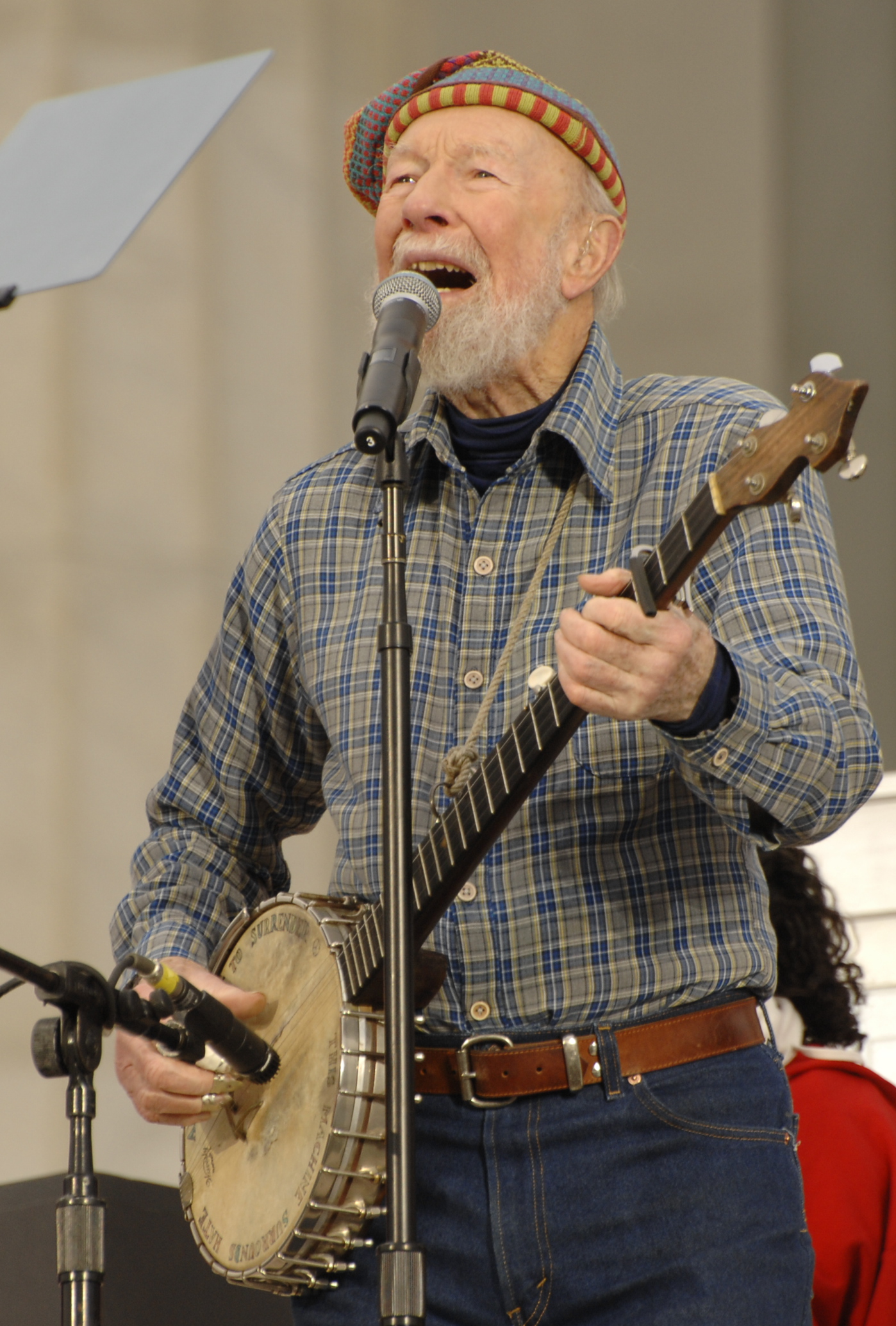" The Old Left http://www.nytimes.com/1995/01/22/magazine/sunday-january-22-1995-the-old-left.html?n=Top/Reference/Times%20Topics/People/S/Seeger,%20Pete", New York Times Magazine, 22 January 1995, sect. 6 p. 13
Pete Seeger: Frases em inglês
Fonte: How Can I Keep from Singing: Pete Seeger (1981), p. 119
" The Old Left http://www.nytimes.com/1995/01/22/magazine/sunday-january-22-1995-the-old-left.html?n=Top/Reference/Times%20Topics/People/S/Seeger,%20Pete", New York Times Magazine, 22 January 1995, sect. 6 p. 13
“The key to the future of the world, is finding the optimistic stories and letting them be known.”
"Pete Seeger, Songwriter and Champion of Folk Music, Dies at 94" New York Times (28 January 2014)
Pop Chronicles, Show 1 - Play A Simple Melody: Pete Seeger on the origins of pop music http://digital.library.unt.edu/ark:/67531/metadc19745/m1/, interview recorded 2.14.1968 http://web.archive.org/web/20110615153027/http://www.library.unt.edu/music/special-collections/john-gilliland/o-s.
“Technology will save us if it doesn't wipe us out first.”
"We Shall Overcome: An Hour With Legendary Folk Singer & Activist Pete Seeger" on Democracy Now (4 September 2006) http://www.democracynow.org/article.pl?sid=06/09/04/1416217&mode=thread&tid=25
Lyrics added to "We Shall Overcome" by Seeger in the late 1940s, whose musical arrangement and renditions helped popularize the song among civil-rights activists in the late 1950s and early 1960s. He also changed the primary lines from from "We Will Overcome" to "We Shall Overcome".
